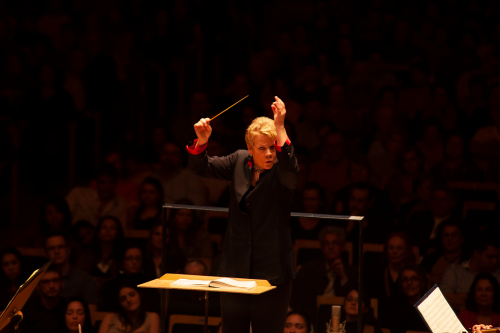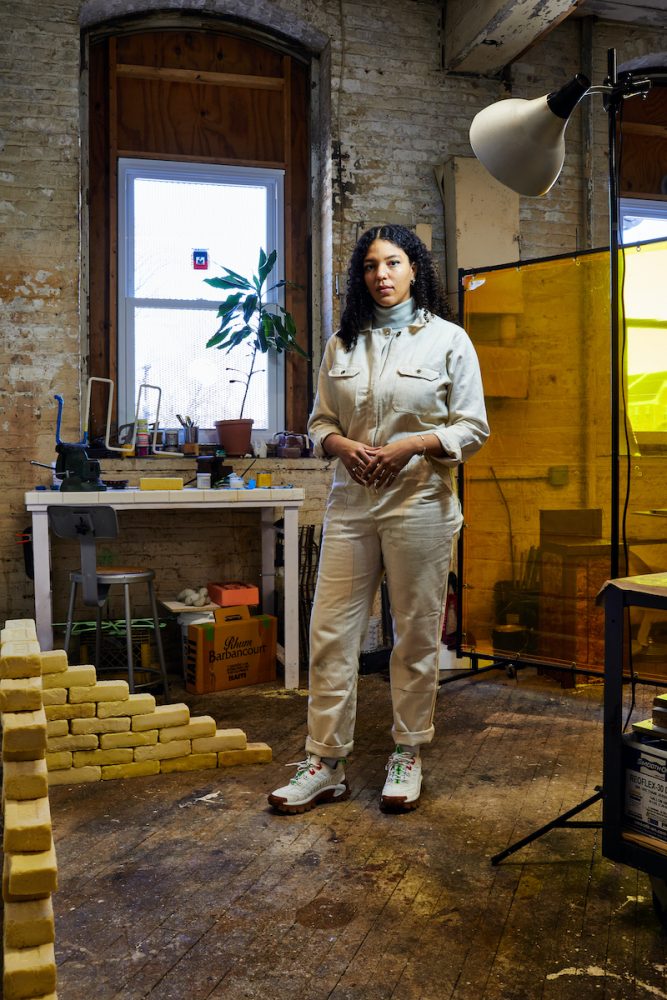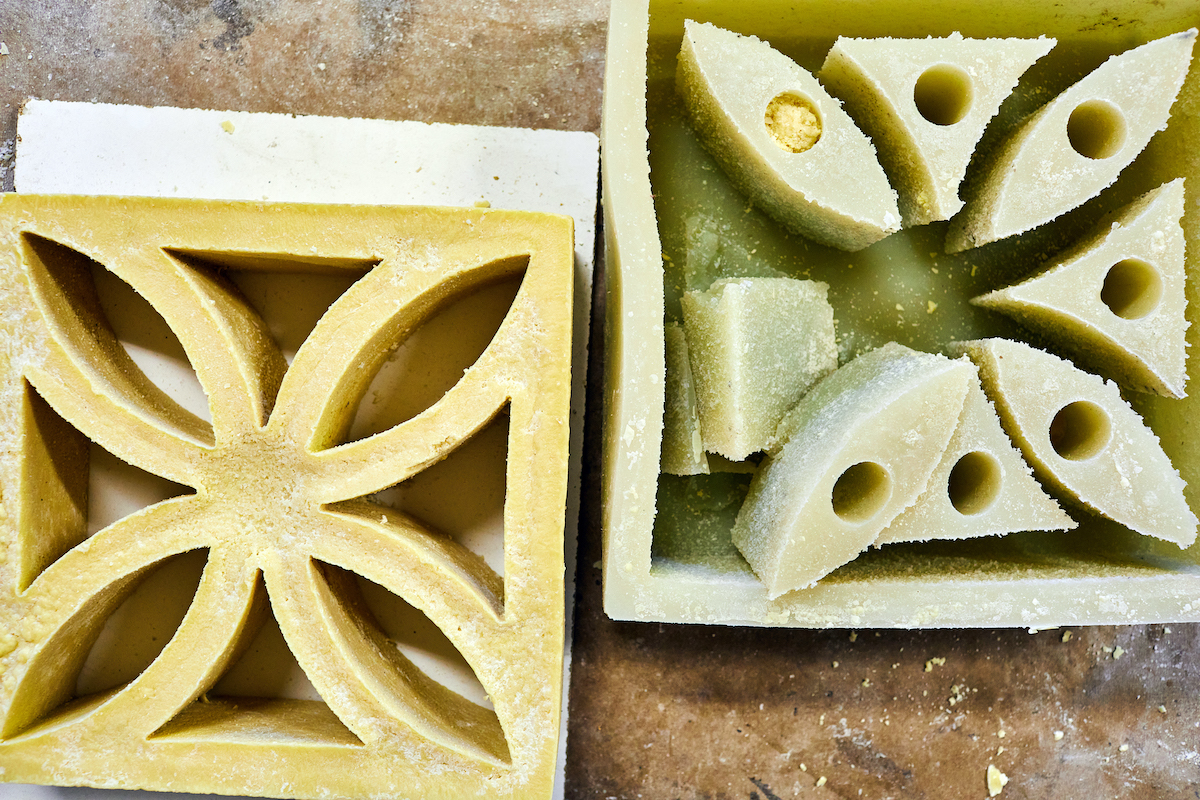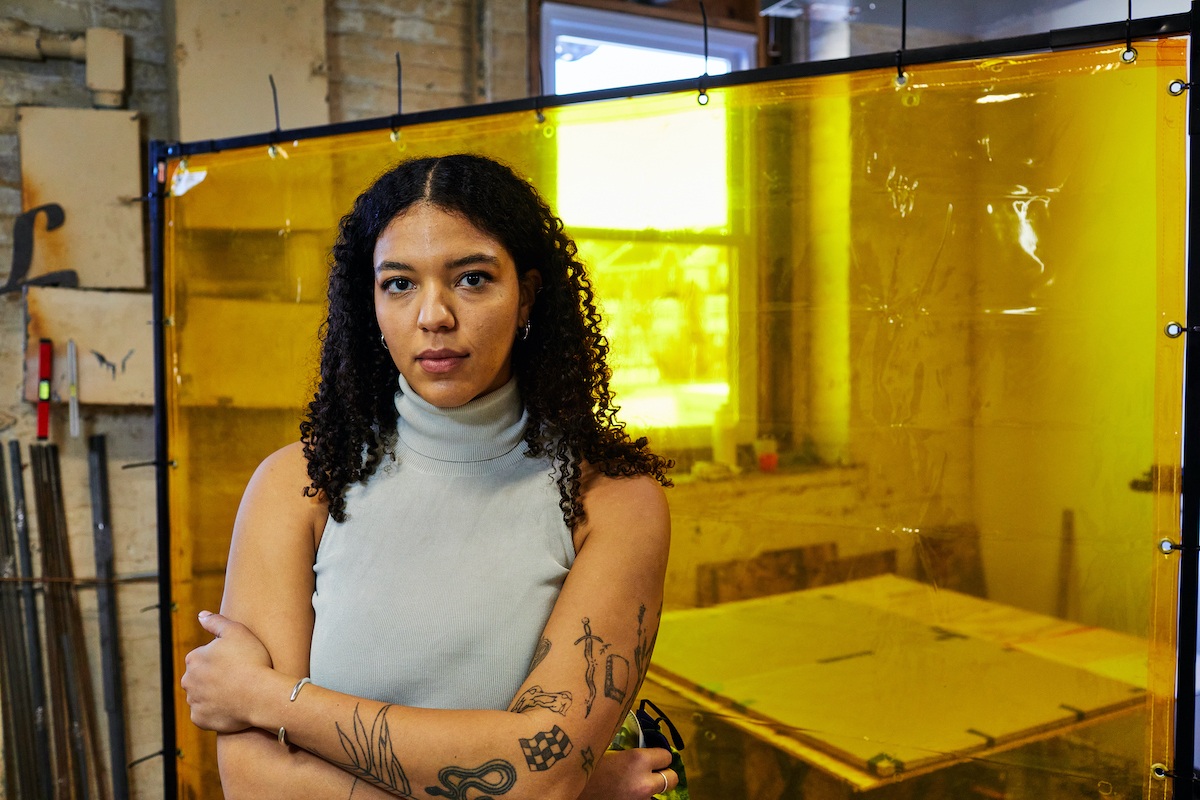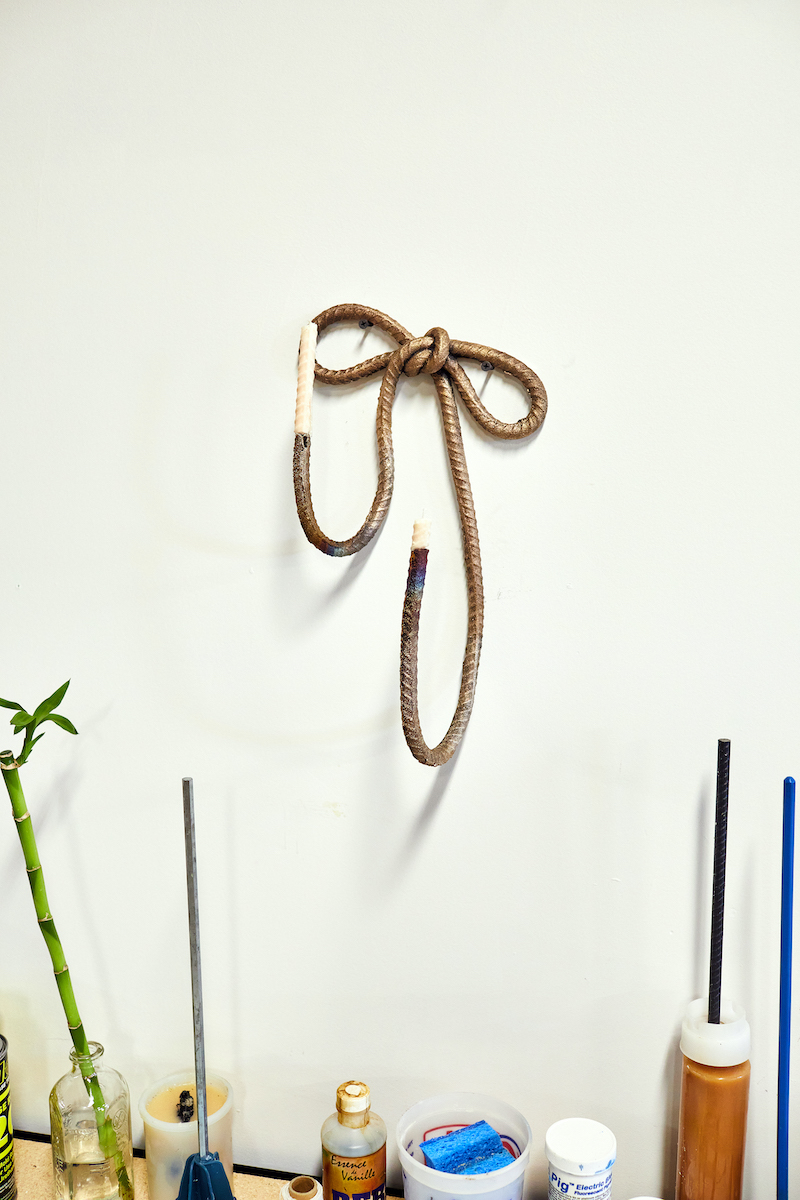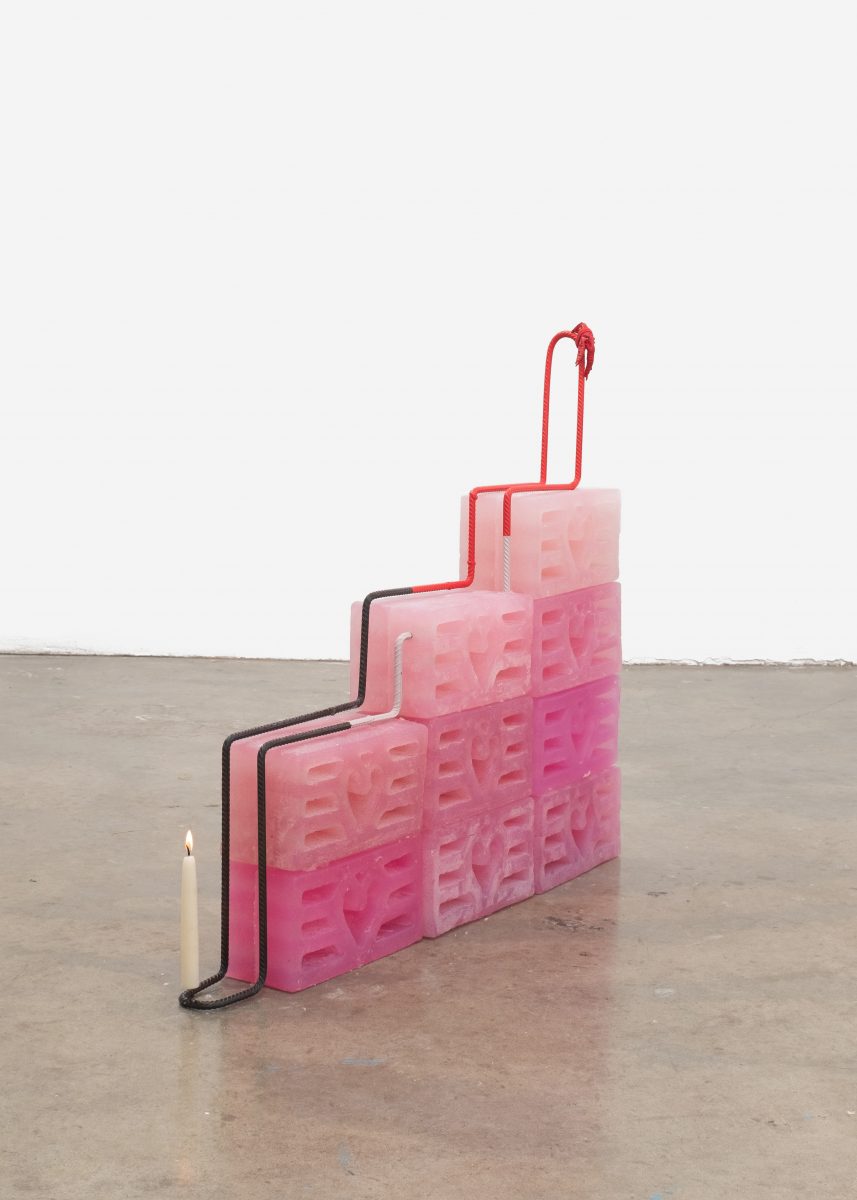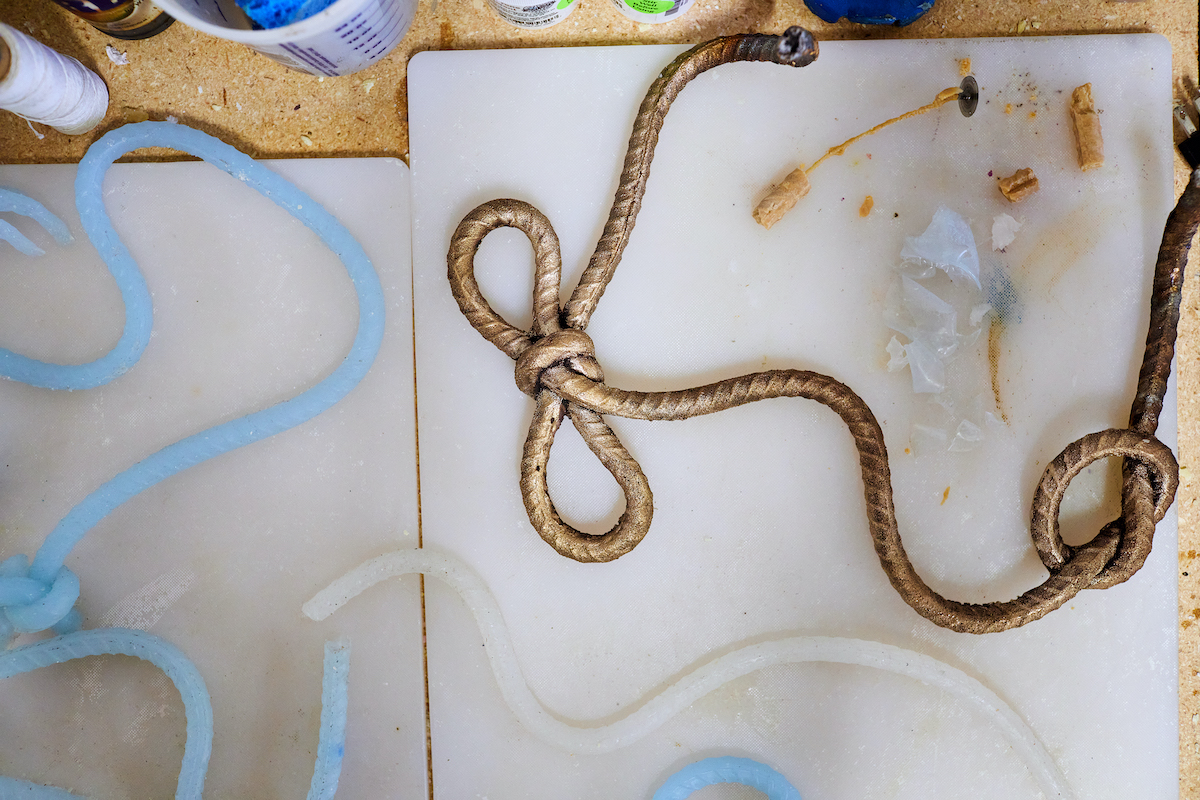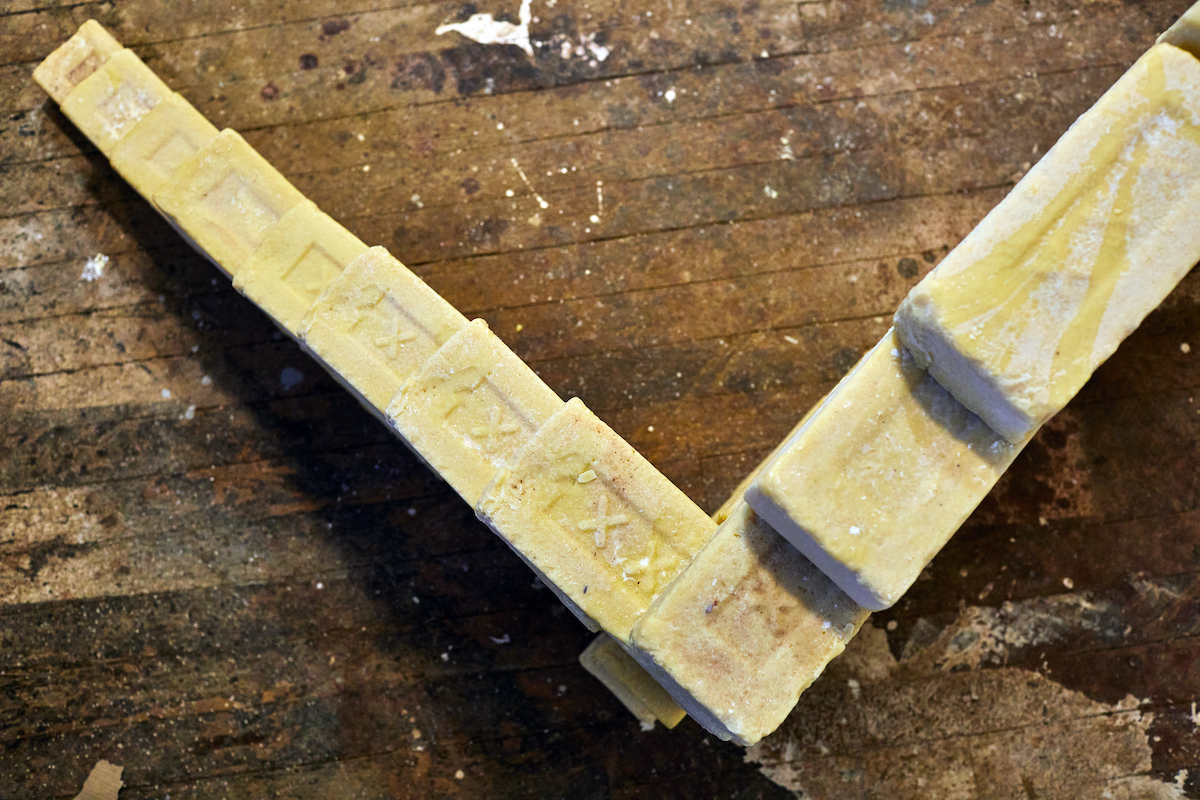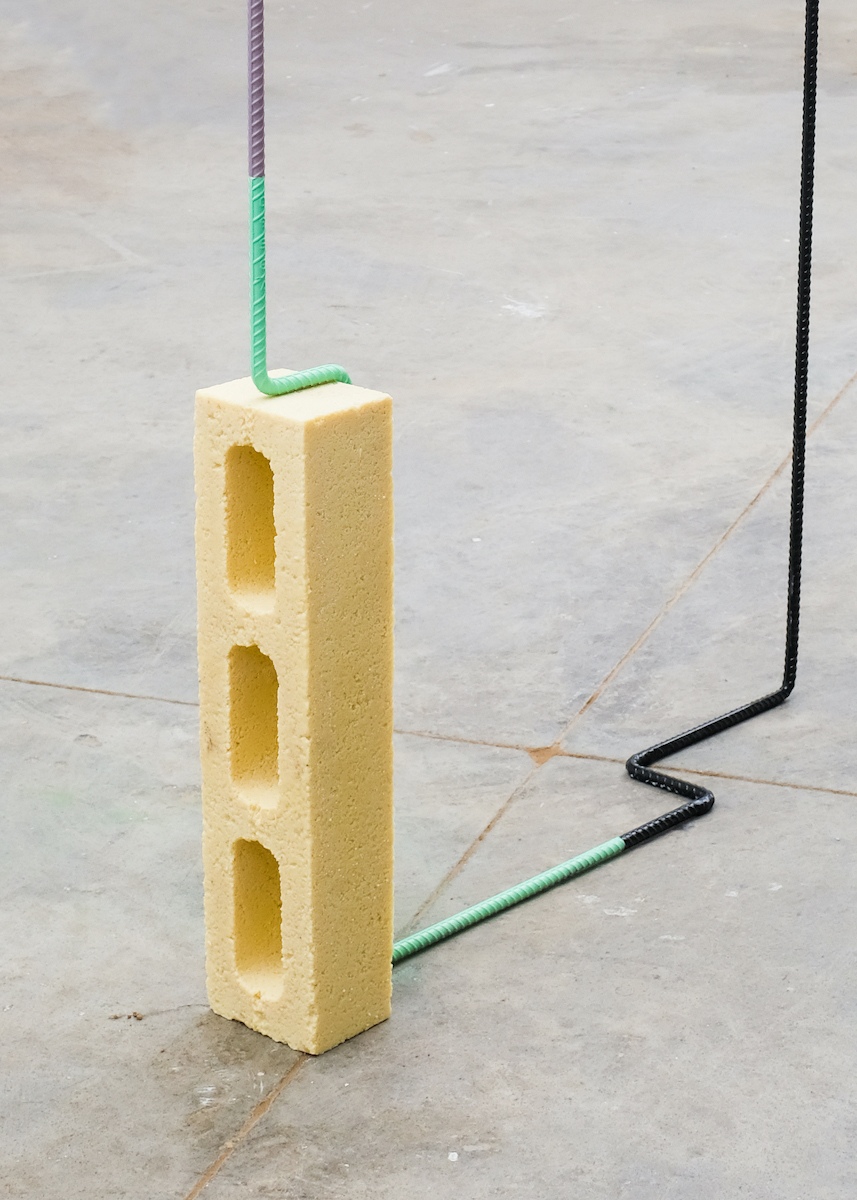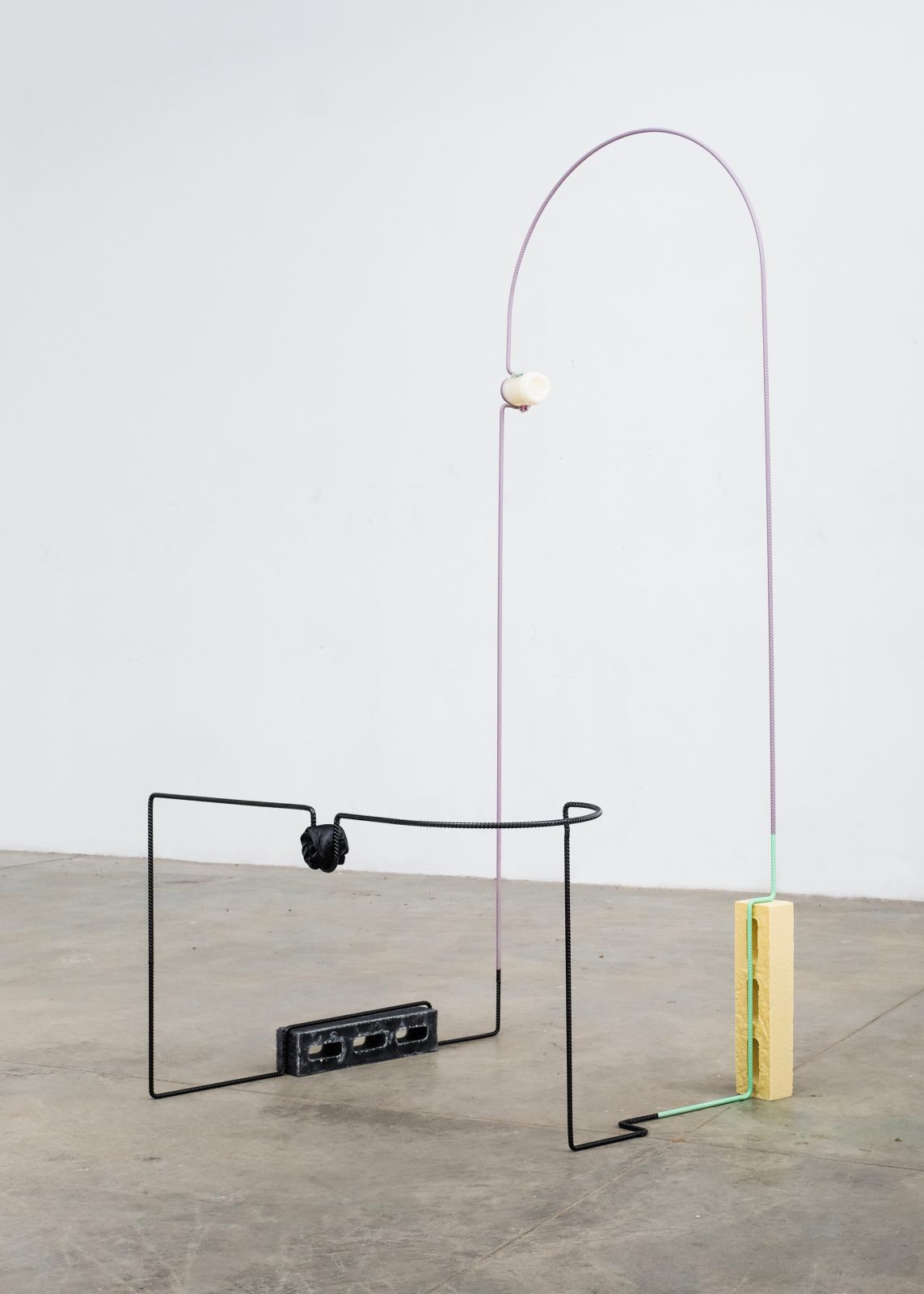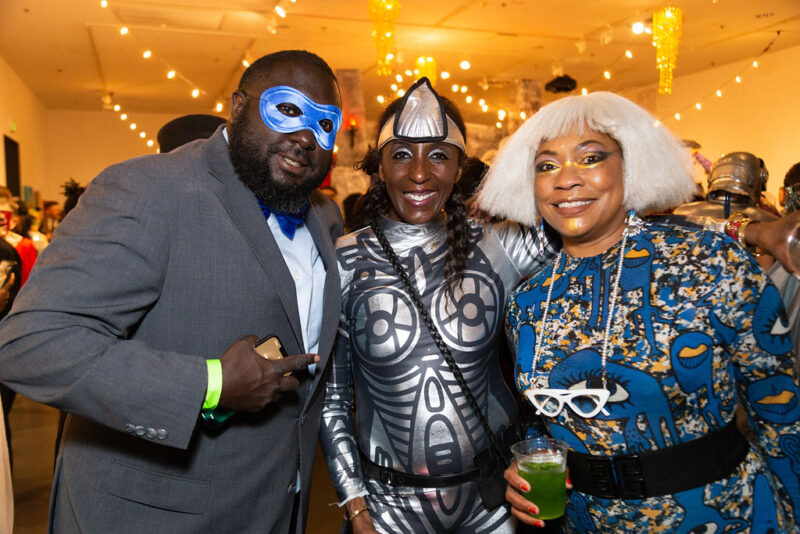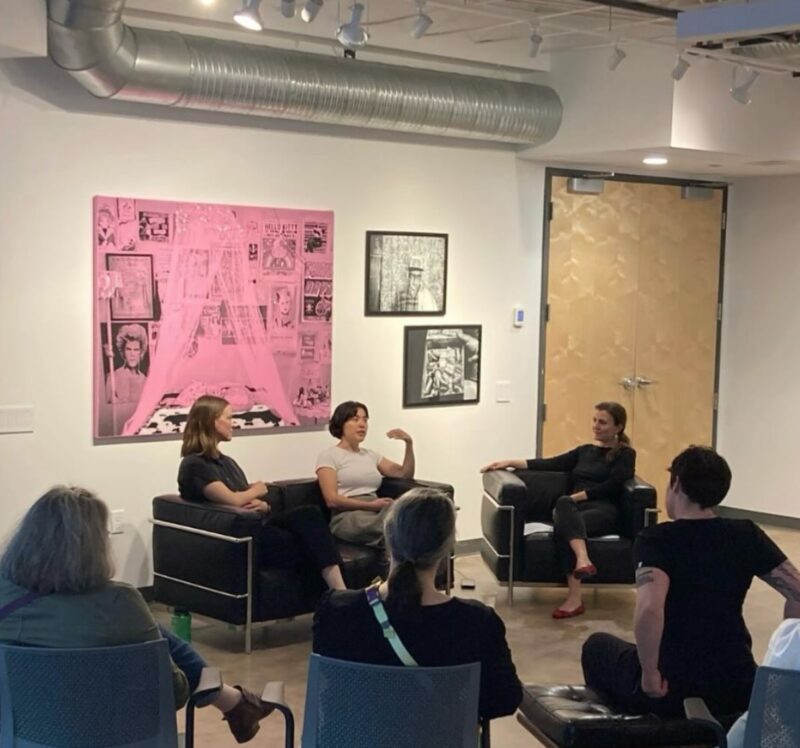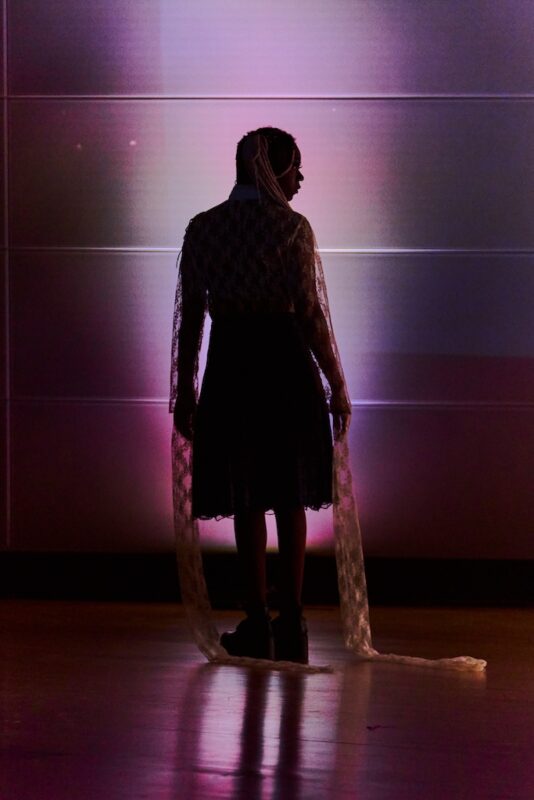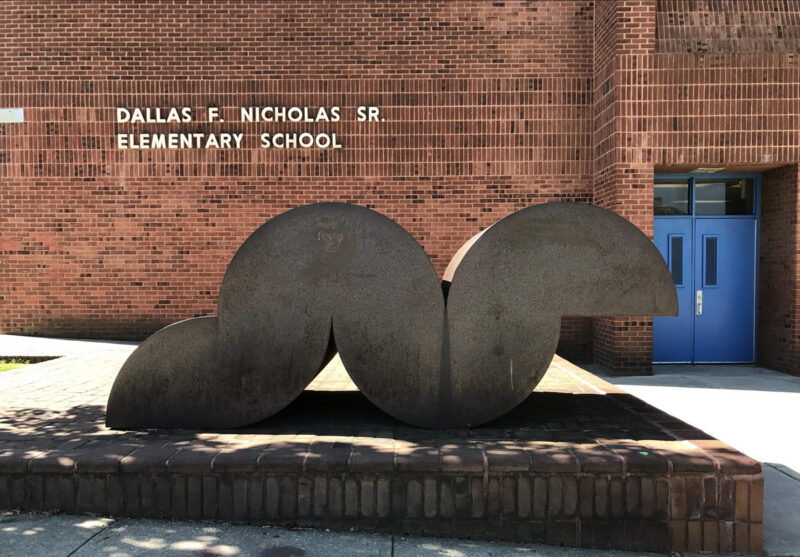Lucien’s work is an investigation of how everyday materials can function as metaphors recalling an absence or intimacy of the human body, and they work most often with their own body, using it as a tool they describe as “activating inquiry” with materials. In airy compositions of metal, video, found material, print, and sound, the artist hopes that their activation of selected but familiar material will leave space for viewers to question their own experience with the works and the structures they evoke.
For the installation at SculptureCenter, titled in Holding Your Name Like Butter in Your Palm, Lucien used 365 pounds of cocoa butter to cast breezeblocks in the ubiquitous “sunflower” pattern (also known as cloverleaf and snowflake depending on the region and manufacturer) to evoke passageways in both Haiti and Florida. They also cast bricks from SculptureCenter’s original foundation in cocoa butter, recalling both the creation of a building and the act of laying a memorial to the departed. Into these bricks, she carved the initials of Black people who were killed by the police in 2020.
“The act of hand carving a name is a way of meditation on loss,” Lucien says. “The gesture is symbolic of a prayer one might cast for care or protection over a loved one. The installation’s essence is to be reflective and restorative, making a statement of the importance of valuing Black life within and outside of the context of an art institution.” While visitors cannot touch the piece and feel it melting with their own body heat, the smell of the cocoa butter is still extremely evocative, leaving the viewer to make their own associations with the lubricant which is often applied directly to the body as a gesture of care.
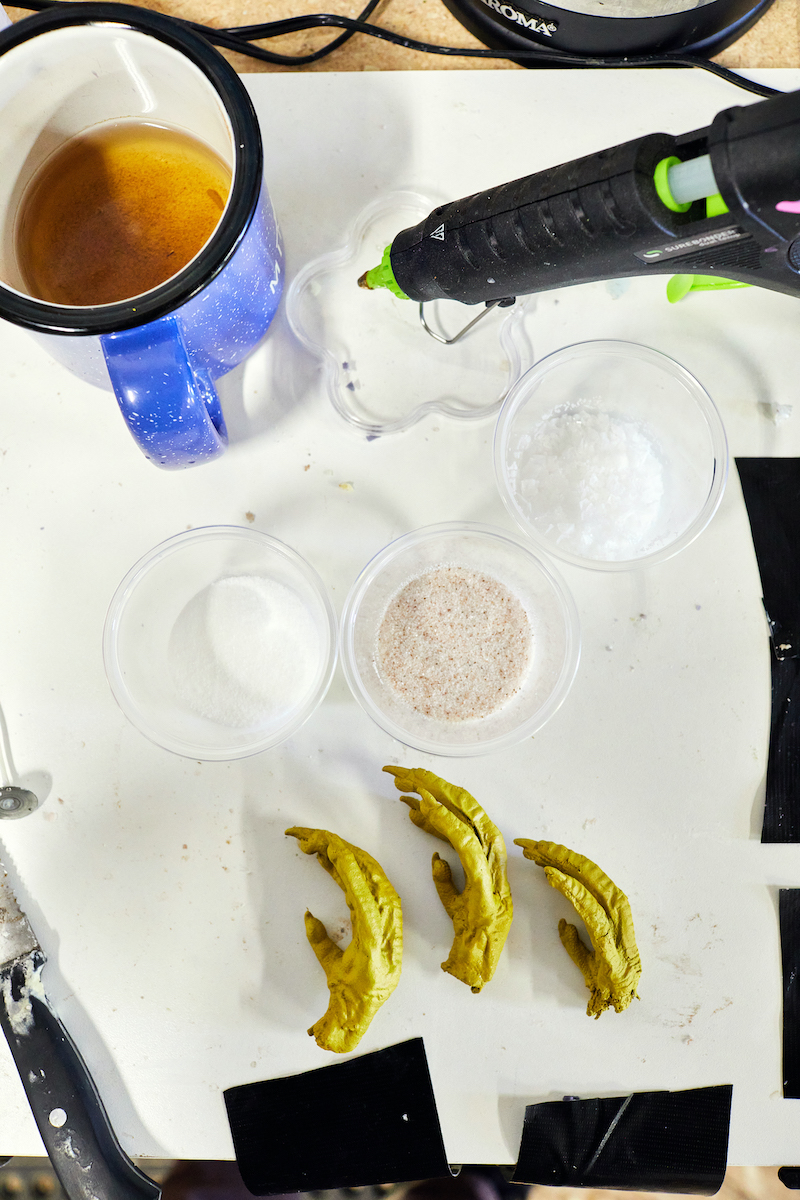
Unable to return home to Haiti due to COVID, Lucien is missing the important rituals that are intended to provide comfort and typically accompany deaths that occur outside of a global pandemic: gathering with family, a funeral, and time at home together to discuss a shared loss. The pieces at SculptureCenter are a reflection of the labor and weight of grief as well as what inevitably comes next: getting on with your own life, which Lucien explains “the experience of how you make room for other things, while you’re still living with grief and having that sort of daily ritual of understanding.”
In Mary Oliver’s poem “In Blackwater Woods”—part of the collection Our World, written after the death of Molly Malone Cook, her partner of over fifty years—the speaker explains that to live we must do three things: “love what is mortal/ to hold it/ against your bones knowing/ your own life depends on it/ and, when the times comes to let it go/ let it go.” What Oliver knew, and what Lucien is telling their viewer, is that letting go of people closest and most important to us is the hardest. The process of making this work for Lucien was a ritual and a meditation of mourning for her family members, as well as for members of the Black community killed by police in the first year of the pandemic.
There is a factuality about continuing to live while someone important to you has died; it becomes like a scar that you can choose to expose or not. Perhaps this is the letting go that Oliver talks about. The pain becomes less raw and more mundane, a once gaping wound that morphs into an old sports injury, largely letting you walk around and live life and then flaring up and totally flattening you without notice. The word “lost” when applied to death feels entirely hollow—people typically are not missing, they are dead. But they are lost to us, and we often prefer poetry to fact. For everyone who has lost core family members, it’s an absence that never gets better. But over time, the feelings you carry around death change. For Lucien, this process is about “navigating these sort of unresolvable moments that are these steps towards a healing.”
SUBJECT: Abigail Lucien, 28
WEARING: Handyma’am coveralls, thrifted sleeveless baby blue turtleneck, CAT sneakers
PLACE: Zoom

